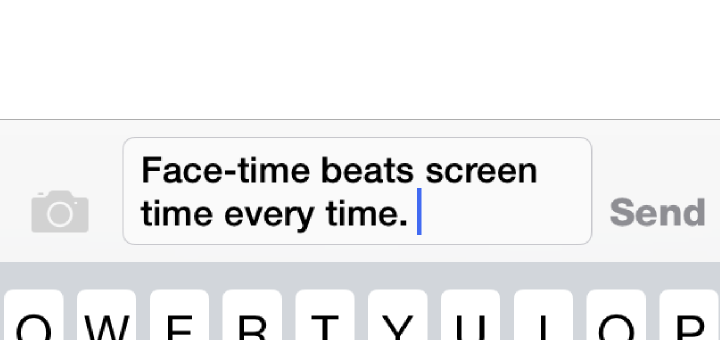There’s something powerful about raw, unfiltered, unmediated face-to-face interaction that’s just better than… well… everything else. Now, I’m not totally anti-social-media, or against all television viewing or computer use. In fact, a quick survey will show that even in my house there is a screen-to-human ratio of 2.2 to 1. But the “social” interaction we feign online is just plain inferior to the kind that happens around the table or over a board game.
And you knew it too.
We didn’t need the recent study published in the journal “Computers in Human Behavior” to tell us that 5 days at an overnight nature camp was actually better for the social development of preteens than five days of ordinary video games, television shows and texting. Those of us who grew up in a different time… “playing outside” and “riding bikes”… we already knew that to be true.
But what’s the point? Should we abandon these newfangled methods… or something else?
I think something else is in order. So, if you’re the parent or youth pastor of a preteen or teenager, here’s what I think you should do:
Talk to your kids every day, face-to-face.
Riding in the car doesn’t count. Hollering across the kitchen doesn’t count. Using Face Time on your iPad doesn’t count.
Find a way to look each other in the eye. Rearrange your living room, if you have to, so that your seating isn’t all oriented at the TV. Consider having dinner together at the dining room table. Play a game of go fish. Talk. Laugh. Listen. And do it face-to-face.
Stop asking, “How was your day?”
Because you already know what the answer will be. Uh huuu. Yup. Fine. Good.
Instead, lead with some information about your day, and don’t hide your emotions. Allow them to see you happy, sad, frustrated, mad, or scared. It’s good practice for them to learn to interpret these cues in a safe environment, and also models for them the kind of transparent dialogue you crave with them. Who knows? Maybe someday they’ll just start talking and tell you all about their day.
Go outside and do something.
Seriously. Even if the weather isn’t perfect. It doesn’t have to be a well-planned day at the park. Just set your phones down and go out in the yard with a baseball, into the driveway with a basketball, into the garden with a shovel.
These are the sorts of things that happen when kids are at camp, and part of the magic identified in the study. You see, when kids exchange their phones for walking sticks and s’mores, they also end up spending more time face-to-face with peers and trusted adults. They engage in meaningful conversation. And they build strong relationships (even in short periods of time) when they do stuff together, outside.
But you already knew that, didn’t you?
